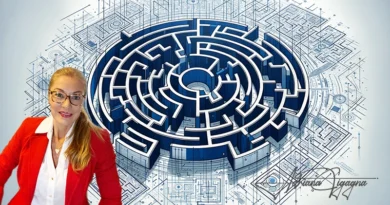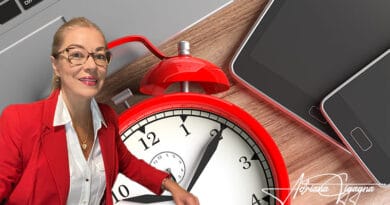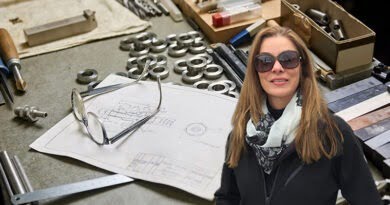Unleashing the Power of Proactive Maintenance in the Hospitality Industry
Table of Contents
ToggleUnleashing the Power of Proactive Maintenance in the Hospitality Industry
As an Engineering Manager, I recognize the critical role that an effective preventive maintenance program plays in ensuring the seamless operation of a hotel facility and enhancing guest satisfaction. Drawing from my experience, I’d like to share some recommendations on how to improve your hotel’s preventive maintenance program. These suggestions aim to help you optimize the performance and reliability of your equipment and systems, ultimately contributing to an exceptional experience for your guests. Let’s dive into these strategies and explore how they can benefit your hotel’s maintenance operations.
Invest in Staff Training and Development
A well-trained and knowledgeable team is the foundation of an effective preventive maintenance program. Provide your staff with regular training sessions that cover equipment operation, maintenance procedures, and safety protocols. Encourage them to attend industry conferences and workshops, as this will help them stay updated on the latest trends and technologies. By fostering a culture of continuous learning and improvement, you’ll be empowering your team to approach maintenance proactively.
Implement a Computerized Maintenance Management System (CMMS)
A CMMS can be a game-changer for your hotel’s maintenance operations. Start by evaluating and choosing a system that best fits your needs and budget, considering factors such as ease of use, scalability, and integration with existing systems. Ensure that your team is well-trained on using the CMMS effectively to fully leverage its potential in streamlining maintenance processes. It’s also important to continuously review and update the CMMS data to maintain accurate records of equipment, maintenance schedules, and work orders.
A few systems available in the market:
eMaint CMMS by Fluke Corporation
Website: https://www.emaint.com/
eMaint is a popular cloud-based CMMS that offers a wide range of features, including work order management, preventive maintenance scheduling, asset management, and reporting. It is designed to be user-friendly and customizable to meet the needs of different industries, including hotels.
UpKeep
Website: https://www.onupkeep.com/
UpKeep is a mobile-first CMMS that allows maintenance teams to manage work orders, assets, and maintenance tasks from anywhere using their smartphones or tablets. The platform offers features such as work order management, preventive maintenance scheduling, inventory management, and reporting.
Fiix
Website: https://www.fiixsoftware.com/
Fiix is a cloud-based CMMS that offers a range of features, including asset management, work order management, preventive maintenance scheduling, and inventory management. It provides an easy-to-use interface and is designed to help organizations improve their maintenance operations.
Hippo CMMS
Website: https://www.hippocmms.com/
Hippo CMMS is a user-friendly maintenance management software that offers features such as work order management, preventive maintenance scheduling, asset management, and inventory management. It is designed to be simple and easy to use, making it a popular choice for small to medium-sized businesses.
Maintenance Connection
Website: https://www.maintenanceconnection.com/
Maintenance Connection is a web-based CMMS that provides a comprehensive suite of maintenance management features, including work order management, preventive maintenance scheduling, asset management, inventory management, and reporting. It is designed to be scalable and customizable, catering to organizations of various sizes and industries.
Remember to research each of these options and compare their features, pricing, and reviews to find the CMMS that best suits your hotel’s needs and budget.
Establish Performance Metrics and KPIs
Benchmarking your hotel’s maintenance performance against industry standards and competitors can provide valuable insights. By regularly reviewing your KPIs and adjusting your maintenance strategies accordingly, you can achieve better results. Sharing KPI data with your team can foster a sense of ownership and accountability, motivating them to contribute to the success of the maintenance program.
Schedule Regular Inspections and Audits
Developing and implementing a detailed inspection checklist for each piece of equipment and system is crucial to ensure consistency and thoroughness. Make sure to allocate sufficient time and resources for inspections, as they play a vital role in preventing unexpected failures and downtime. It’s also important to have a system in place for recording inspection findings and follow-up actions, which can help ensure timely resolution of any identified issues.
Collaborate with External Service Providers
Partnering with reputable service providers who have experience in the hotel industry and relevant expertise can greatly benefit your maintenance program. Establish clear communication channels and expectations with your external partners to ensure seamless collaboration. Periodically reviewing and assessing their performance will help you ensure they continue to meet your hotel’s maintenance needs and standards.
Embrace Technology and Innovation
Staying informed about the latest technological advancements in hotel maintenance, such as IoT devices, predictive analytics, and energy-efficient equipment, can help you identify opportunities for improvement. Assess the feasibility and potential benefits of integrating new technologies into your maintenance program, taking into account factors like cost, compatibility, and scalability. Encourage your team to be innovative and open to exploring new ideas and solutions that could enhance your maintenance processes.
By incorporating these suggestions into your hotel’s preventive maintenance program, you’ll create a comprehensive and effective strategy that optimizes the performance and reliability of your equipment and systems, ultimately contributing to an exceptional guest experience. Remember that the key to success lies in continuous improvement, ongoing learning, and adaptation to the evolving needs of your hotel and its guests.





